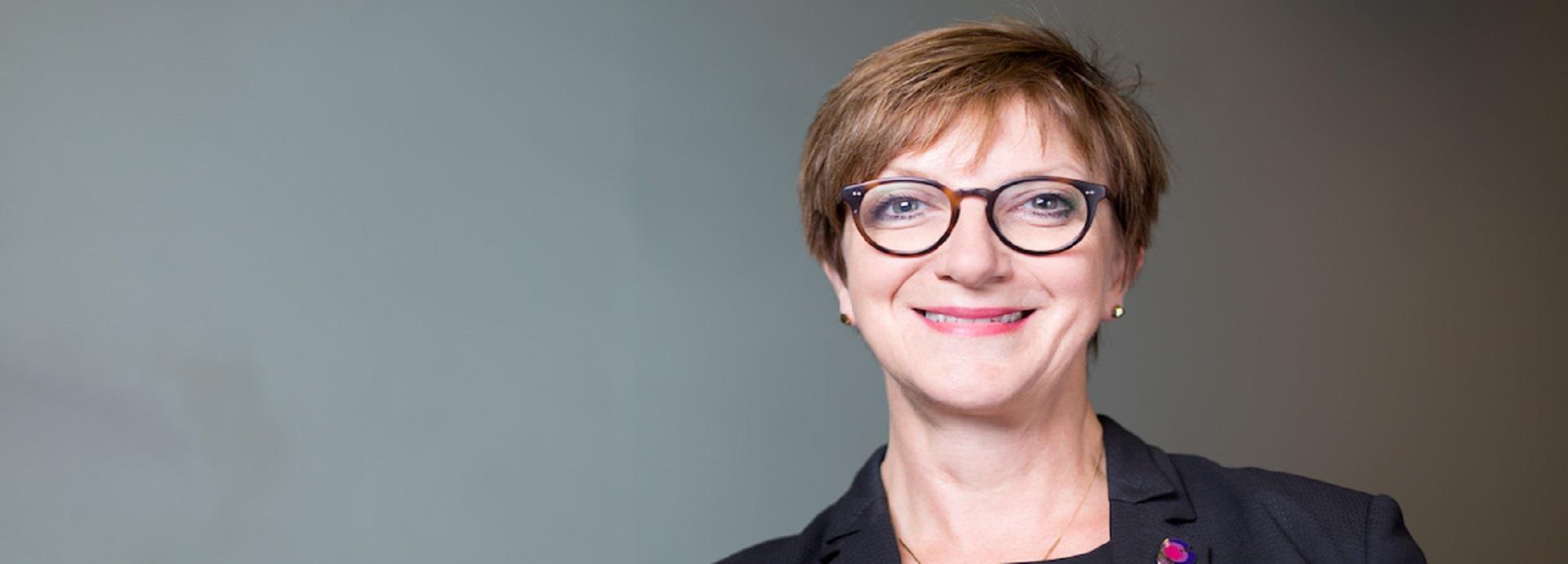

Nina Skorupska is the Chief Executive of the Renewable Energy Association and has been at the forefront of the march towards renewable energy grids. Now, her goal is to get households in the UK to produce their own electricity for the benefit of all. This is her story.
As the Chief Executive of the UK’s Renewable Energy Association (REA), Nina Skorupska is one of the most influential women in the UK energy market. Surprisingly, however, the energy industry was not her first passion.
“I was a Star Trek fan and I wanted to boldly go where no woman has gone before,” recalls Skorupska as she reminisces about the choices that made her the person she is today.
As any Trekkie would do, Skorupska went to university to study astronomy and astrophysics. “But I realised my mathematics wasn’t as hot as it needed to be,” she laughs. Soon enough, based on her professor’s guidance she ended up joining the energy sector. Where space may have lost a would-be pioneer, the energy industry ended up gaining a formidable leader.
While energy may not have been her first choice, she pursued her career with enthusiasm and boldness. The daughter of a Polish immigrant, she became the first woman to run one of RWE’s UK power stations. She was only 39 then and it was just the beginning. Eventually, she went on to lead the REA in 2013 and was even named one of Women’s Engineering Society’s Top 50 Influential Women in Engineering in 2016
The rise of the prosumers
Having been part of the industry for the past 30 years, Skorupska has seen the energy industry’s metamorphosis from the ground up. And, as far as she is concerned, this is the most exciting time for the sector thanks to the advent of renewable energy.
According to a KPMG report prepared at the request of the REA, since 2012 the costs of domestic-scale solar photovoltaic cells have fallen 40% and global wind costs have fallen 60% since 2009. At the same time, the storage capacities of batteries have been rising while the costs of the batteries themselves have been falling. The case for renewable energy has never been stronger than it is now.
“It is absolutely about having the sensibility of understanding the good and the bad things of all the different technologies and how fast things are changing, and the need to change to address climate change,” says Skorupska.
Part of her responsibilities in leading the REA is to promote the use of renewable energy in the UK, and the most interesting, and possibly the hardest part of doing this is the concept of sharing power generation — already a popular concept in many parts of Europe. And for this to happen, Skorupska wants individual consumers to use renewable energy to generate power for themselves, and even feed excess power back into the grid. The industry calls this group of consumers ‘Prosumers’ and Skorupska is proud to be one of them.
“I have solar panels on my home and not only do I consume it, but I produce it as well and I sell it into the market,” she explains.
Taming the final frontier
Skorupska’s efforts to turn more people into prosumers is aided by the REA’s network of over 560 renewable energy stakeholders who possess the technologies and expertise to help prosumers generate decentralised energy for homes, entire neighbourhoods, towns or even businesses.
“There’s no one single template,” she says of what works in the prosumer economy. “The key thing that makes all of this work is technology.”
However, this doesn’t mean that Skorupska is unaware of the risks. She says there are two major worries, both of which are about protecting the consumer.
The first major worry is about the cybersecurity risks of a connected and shared grid. “When you connect everything up, other things and other people want to connect to you as well,” warns Skorupska. “So, we have to work hard with technology specialists and we have to stay ahead of very clever people who try to take advantage of new things.”
The second worry relates to scams related to renewable technology. “We must not have cowboys come in and abuse and take advantage of consumers because this will set back decentralised energy big time,” explains Skorupska.
In order to combat this, the REA already has a subsidiary, the ‘Renewable Energy Consumer Code’ to verify and check that people are installing renewable and clean tech. The REA is also currently advising a forum by the Department for Business, Energy and Industrial Strategy (BEIS) and Office of Gas and Electricity Markets on smart systems to upgrade UK’s energy system.
“What we need to ensure is that the system is fair and transparent. We continue to educate and innovate, and hopefully, more and more people will become excited and not just a 56-year-old like me,” says Skorupska, optimistically.
Did you like this? Subscribe to Insights updates!
Once every six weeks, you will get the top picks – the latest and the greatest pieces – from this Insights channel by email.


